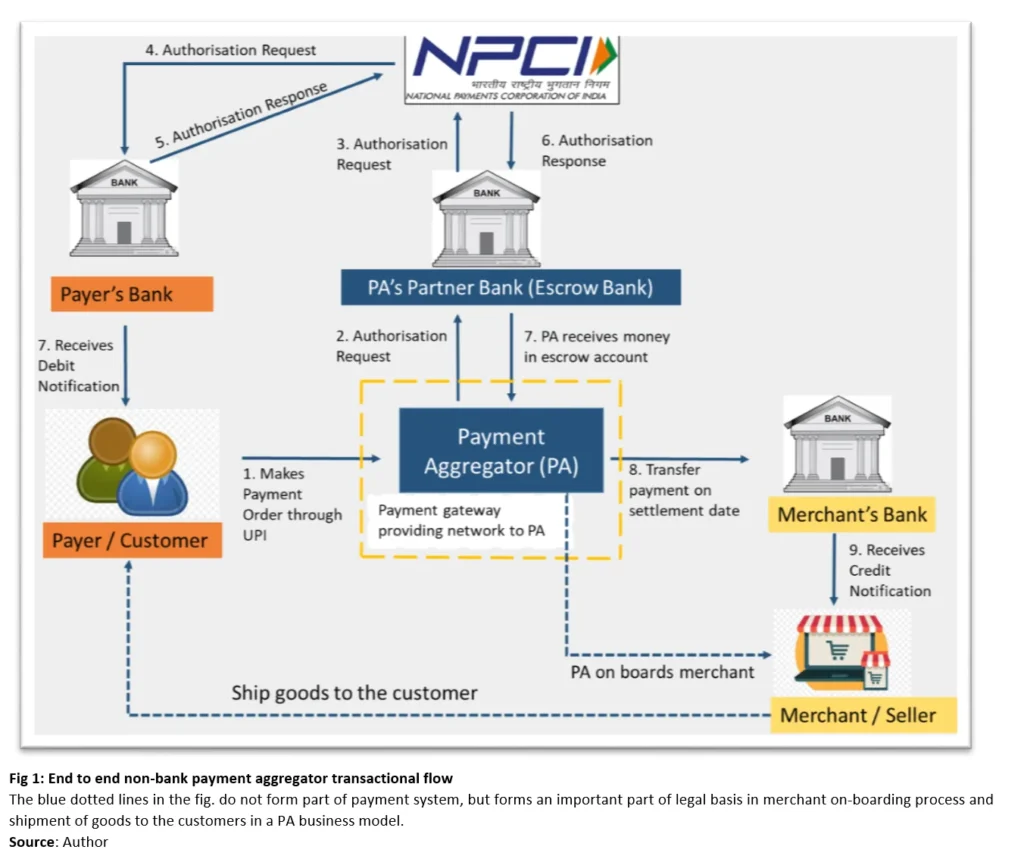Two fintech startups recently received the final licence from the Reserve Bank of India (RBI) to operate as payment aggregators.
About Payment Aggregators:
- A payment aggregator is a third-party service provider that enables customers to make and businesses to accept payments online.
- They enable their clients to accept various payment methods such as debit cards, credit cards, cardless EMIs, UPI, bank transfers, e-wallets, and e-mandates.
Features of Payment Aggregators:
- Sub-Merchant Account: PAs assist in setting up sub-merchant accounts, allowing businesses to accept payments. Without such accounts, transactions cannot be processed.
- Documentation: To create a sub-merchant account, businesses need to provide documents like proof of business address, bank account statements, and PAN card details.
- There may beKYC procedures involved in the onboarding process.
- Efficient Onboarding: A reliable payment aggregator can expedite the merchant onboarding process, often completing it within a few days.
- Payment aggregators prioritize security to prevent fraud and safeguard customer data.
Working of Payment Aggregator:
- Payment aggregators provide businesses with a simplified way to accept payment from multiple sources.
- First, the business creates an account with the payment aggregator, which provides them with merchant accounts to accept payments.
- When they are ready to purchase, they head to the checkout page and select their preferred payment method.
- The acquiring bank receives the transaction information from the merchant.
- The card company then runs a fraud check to ensure the transaction is legitimate.
- Issuer accepts or declines the transaction and sends funds to the acquiring bank.
- The acquiring bank requests the funds from the card issuer, which are then transferred to the merchant`s account.
Types of Payment Aggregators in India:
- Third-party payment aggregator: These independent companies provide payment aggregation services to businesses.
- They partner with multiple payment providers to offer their customers a range of payment options.
- Bank payment aggregators: these are payment aggregators that are owned and operated by banks.
- They offer a more limited range of payment options but may be preferred by businesses prioritizing security and reliability.
| UPSC IAS Preparation Resources | |
| Current Affairs Analysis | Topperspedia |
| GS Shots | Simply Explained |
| Daily Flash Cards | Daily Quiz |




